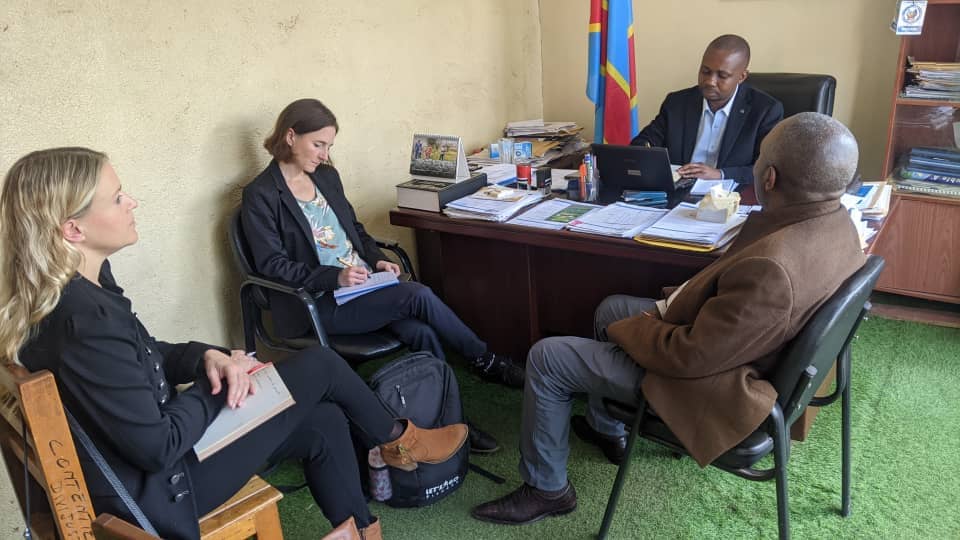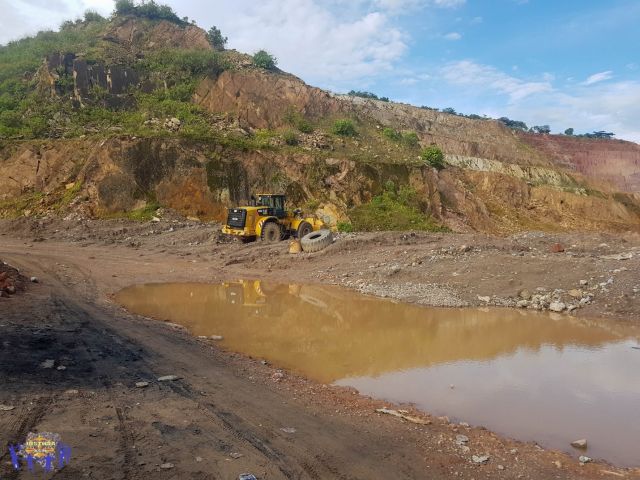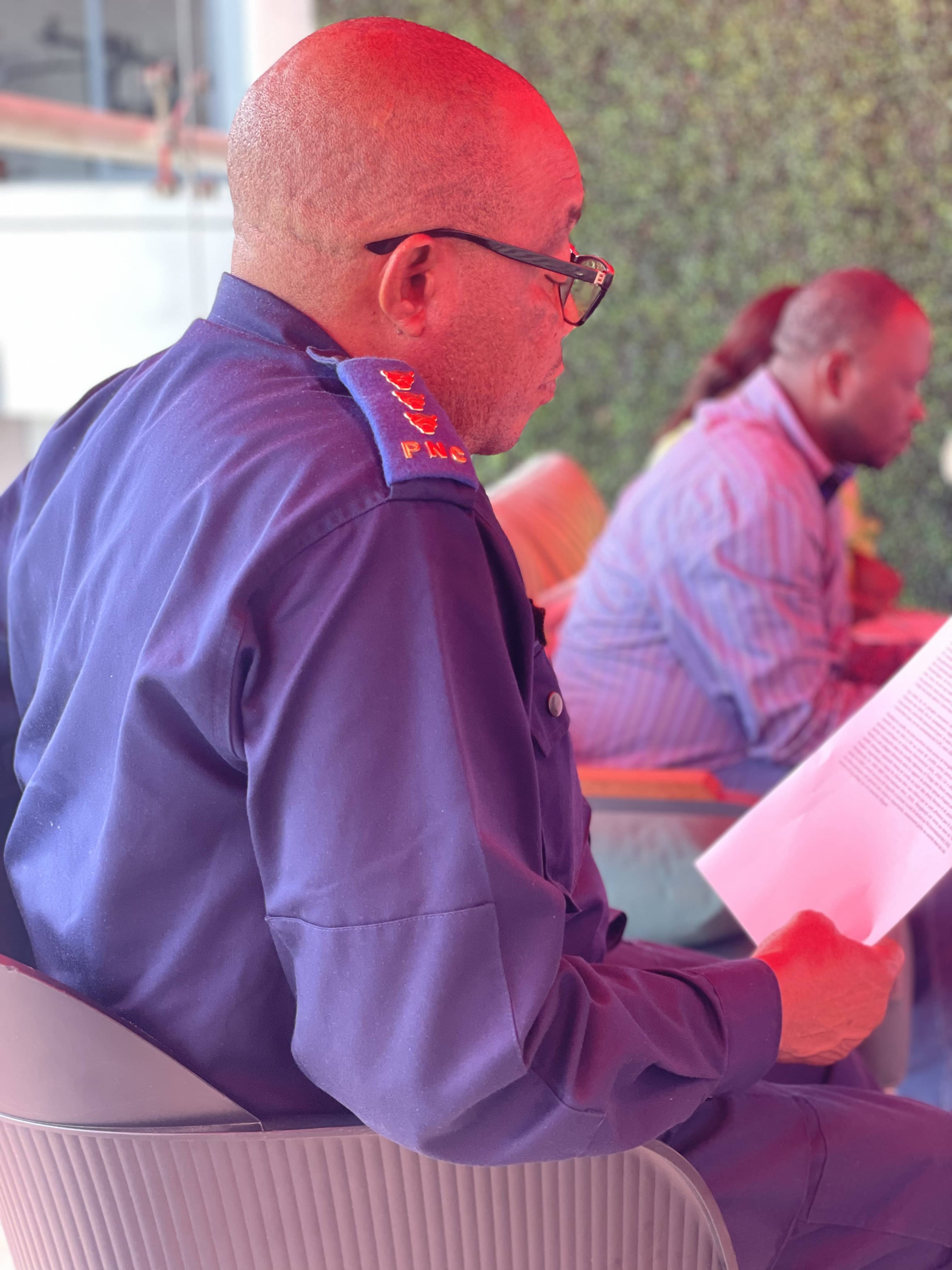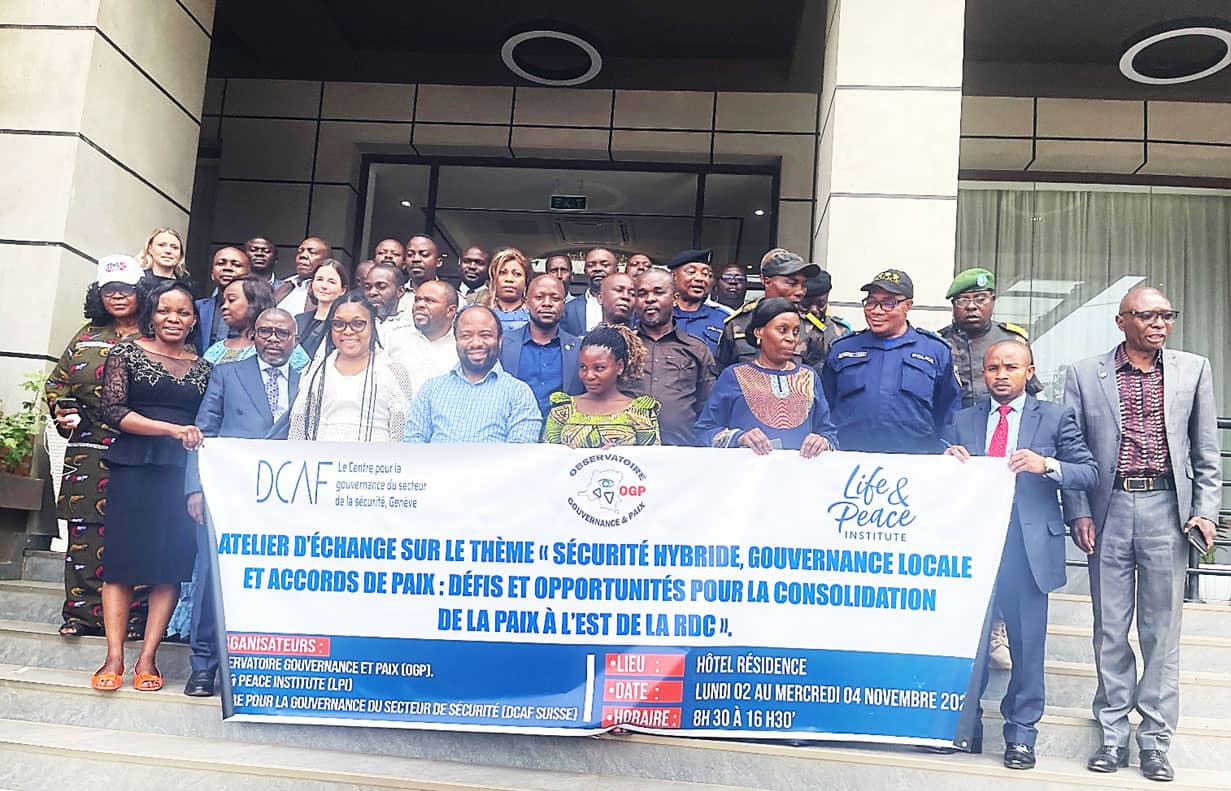Integrating natural resource governance in mediation and peace processes: A key challenge in Eastern DRC
Authorities, Civil Society, and the Private Sector Join Forces to Address Instability Linked to Natural Resources and Strengthen Mediation Efforts
The conflict in Eastern DRC has escalated to a new level of intensity, when the armed group M23, buttressed by the Rwanda Defense Forces, seized Goma and Bukavu, displacing tens of thousands and claiming thousands of lives. The humanitarian crisis is severe, with the UN Security Council unanimously condemning the hostilities.
While the government in Kinshasa has initiated several military, political and diplomatic actions in response to the M23 insurgency, the effectiveness of these measures in addressing local concerns and realities remains debated.

Natural resources play a pivotal role in the region’s strategic importance. While this is not solely a conflict over minerals, the presence of critical resources such as coltan, gold, and other valuable minerals makes the North and South Kivu provinces a geopolitical and economic focal point. Ensuring inclusive, sustainable, and rights-based governance of this industry requires the active involvement of civil society and grassroots organizations. Community perspectives must be integrated into natural resource governance to prevent further instability and conflict.
For this reason, DCAF has been working, since 2018, to integrate local and multi-stakeholder perspectives in natural resource governance through supporting three Voluntary Principles Working Groups (VPWG), including a VPWG in South Kivu. The VPWG develops multi-stakeholder solutions to challenges shared among extractive companies, civil society organizations, security forces, and government authorities. Its goal is to prevent, identify, and manage human rights violations primarily related to security and conflict around mining sites. Through training initiatives, information-gathering missions, advocacy efforts, and mediation activities, the VPWG facilitates dialogue among mining cooperatives, police, military, judicial actors, local authorities, and relevant government services. The Security and Human Rights Toolkit, available in French, is used extensively by the VPWG.
In December 2024, DCAF supported the organization of a workshop on hybrid security[1] local governance and peace processes together with the Observatoire Gouvernance et Paix (OGP) and the Life & Peace Institute (LPI), with support from the Swiss Federal Department for Foreign Affairs (FDFA). It brought together experts to address the fundamental role that resource extraction plays in perpetuating conflict in the region.
The workshop fostered collaboration between the Community of Practice on Peacebuilding in eastern DRC (CPP) and the VPWG. The CPP, supported by LPI, serves as a framework for cooperation, coordination, and harmonization of peacebuilding efforts in eastern DRC. It collaborates with local and community-based structures on conflict mediation, drawing on their in-depth knowledge of the regional context, existing conflicts, customs, and potential avenues for action that external national or international partners may not fully grasp. This collaboration is significant because these two platforms have not previously coordinated. This pioneer event connected local conflict mediation actors to a key business, security and human rights network and facilitated two-way exchange.
The workshop aimed to bridge gaps between key stakeholders, including the private sector, authorities, and security forces (both public and private), to strengthen mediation efforts and promote responsible resource governance. Moreover, participants concentrated on strategies to integrate local perspectives into broader peace initiatives, such as the Luanda and Nairobi frameworks. They emphasized the importance of ensuring that mineral governance and security sector reform remain central to mediation and conflict resolution strategies.
Over the three-day workshop, representatives from both structures engaged in dynamic exchanges on the complex interplay between security actors, armed groups, socio-political actors, and resource management. The event also served as a platform to analyze recent research on hybrid security governance and the way that competition over resources is fueling conflicts.
Key outcomes from the workshop included:
- Strengthening dialogue between community-based peacebuilding initiatives and the VPWG to enhance coordination.
- Developing concrete intervention strategies to reinforce mediation and conflict resolution efforts at local and regional levels, including on the basis of tools and resources developed by the DCAF-ICRC Partnership.
- Sharing lessons-learning from relevant processes: The DRC Voluntary Principles National Action Plan development process, through its inclusive and participatory approach, offers key insights into governance and conflict prevention.
- Integrating into Wider Peace Processes: Exploring how grassroots organization supporting local mediation processes can contribute to ongoing and future regional negotiations, such as the Luanda and Nairobi peace processes.
Looking ahead, stakeholders emphasized the need for sustained collaboration between civil society, local authorities, and international partners to ensure lasting impact. The Swiss Embassy’s substantive contribution helped shape how these two networks could more effectively be channeled to regional peace process dynamics. All in all, the discussions in Bukavu reaffirmed that peacebuilding in the DRC requires inclusive approaches that address both immediate security concerns and the underlying economic and political drivers of conflict.
As the region continues to grapple with instability, DCAF remains committed to supporting its local partners in their efforts to promote responsible security governance and sustainable peace.
Footnotes
1 According to DCAF’s study, Hybrid security: challenges and opportunities for security sector reform, 10 July 2023, hybrid security should be understood ‘[...] as the set of actors, processes and interactions [...] that, by themselves or in conjunction with state actors, have an impact on the security of a state and its population. More specifically, it concerns the myriad of interactions and relationships that these actors (such as private security companies, private sector clients, community self-defence groups and militias, among others) may have simultaneously with the state, communities and each other.’
Related articles





